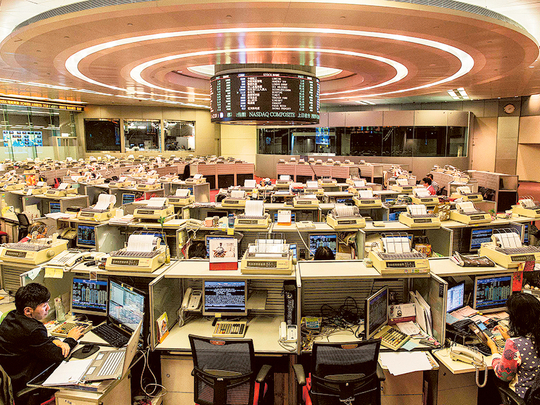
Hong Kong: Asia has had its best third quarter on record for initial public offerings, even with Hong Kong turning quiet as many firms put listing plans in the regional powerhouse on hold amid China’s sweeping regulatory clampdown.
Thanks to blockbuster deals in markets like South Korea and India, first-time share sales in the region raised $56 billion in the three months through Sept. 30, the most ever for such a period, data compiled by Bloomberg show.
“Activity will continue - 2021 remains an extraordinary year for equity capital markets volume,” said William Smiley, co-head of Asia ex-Japan equity capital markets at Goldman Sachs Group Inc. “Global investors still want access to Asian growth.”
Asia’s record third quarter came despite the slowdown in Hong Kong, one of the world’s busiest listing venues. As Beijing broadened its efforts to rein in corporates and align business models with President Xi Jinping’s “common prosperity” campaign, about $1 trillion was wiped off the value of Chinese stocks globally in July and Hong Kong’s stock benchmark sank into a bear market in August.
That saw listing volumes in the financial hub dip to $6 billion in the third quarter, trailing Korea for the first time in four years. It was also the lowest quarterly IPO haul for Hong Kong since the start of 2020, when the pandemic was taking hold and equity capital markets ground to a halt.
Share performance also suffered. Firms that listed in Hong Kong in the third quarter and raised at least $100 million saw their stocks climb just 2.8% from their offer prices on average, according to data compiled by Bloomberg. That’s versus 20% in South Korea and 25% in India, both of which saw big increases in volumes compared with the first two quarters.
“Following a very strong first half for the Street, we are still seeing good activity levels for the remainder of this year albeit at a slower pace,” said Magnus Andersson, co-head of Asia Pacific equity capital markets at Morgan Stanley. “We expect to have a healthy pipeline as we enter next year.”
Korea and India
IPOs by the likes of game developer Krafton Inc. and online-only bank KakaoBank Corp. pushed third-quarter volumes to $10.4 billion in Korea, around four times what was fetched in each of the previous two quarters.
Similarly, in India, food-delivery startup Zomato Ltd. raised $1.3 billion in July. Many more listings are lined up for the final quarter, starting with digital payments company Paytm, which has filed to raise as much as 166 billion rupees ($2.2 billion) in what would be the nation’s biggest IPO ever.
“India now has a savvy, tech-educated population with good internet penetration,” said Anvita Arora, co-head of Asia Pacific equity capital markets at Bank of America Corp. “The combination of factors for tech success is there. In general the tech pipeline is very strong.”
China headwinds
While Shanghai pulled off the biggest third-quarter deal in Asia with China Telecom Corp.’s bumper offer, few bankers expect a heavy pipeline of Chinese listing candidates to come back soon. That’s owing to the continued uncertainty on the regulatory front and as issuers await new rules on overseas IPOs.
Chinese firms that had initially eyed Hong Kong or U.S. listings may now opt to raise money privately instead as they wait for the clouds to clear.
Even with the slowdown in Hong Kong, first-time share sales in Asia have raised $140.5 billion so far in 2021, more than the same period in any other year, Bloomberg-compiled data show.
And while IPOs by Chinese issuers may slow down over the next three months, listed companies are still raising funds.
London-based insurer Prudential Plc fetched $2.4 billion in a Hong Kong share sale in September in one of the city’s biggest follow-on offerings of the year.
The complexion of transactions in Asia will differ from 2020, and a more thoughtful approach to price, size and structure may be needed, but deals will keep being done, said Goldman’s Smiley.








